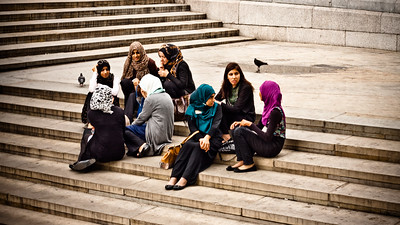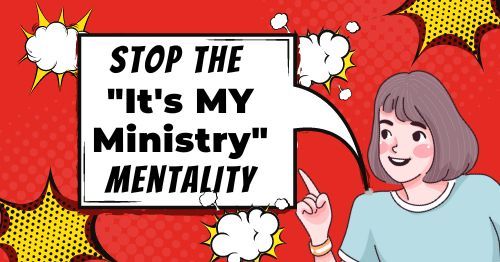#Metoo How to Stop the Madness of Sexual Assault
I woke up this more to breaking news that another entertainer is speaking out against sexual assault, this time in the music industry. One after another it seems that the fissure in the dam of shame and silence can no longer hold as more and more people report issues of sexual misconduct. The genesis of the recent outcry against sexual assault is centered around the Harvey Weinstein scandal in which the popular movie mogul has been accused of various acts of sexual assault against some of Hollywood's biggest stars. Last week we experienced a hashtag phenomena across social media outlets where celebrities both male and female, and regular folk like you and I, took to social media using the #metoo as a symbol that they too have been a victim of sexual misconduct in some way.
This hashtag movement has been met with controversy as many ask, what's next? Some believe #metoo will have little to no impact on actually ending issues of sexual abuse and prosecuting perpetrators. While it may be true that the hashtag is not putting perpetrators behind bars, at the core of this movement is freedom from the metaphorical prison of guilt and shame for those have suffered and never told a soul. I shared my own #metoo on social media and was met with an overwhelming response of women echoing the call "me too, me too!" In fact, I had a discussion with one of these women after reading my post in which she identified with some of the situations that happened to me. She did not recognize until she was reading my post, that she too was a victim of sexual assault. What was remembered as an awkward encounter with an upperclassman was really someone taking advantage of her body and she simply did not have the framework to identify that awkward moment for what it was.
As a mother, I thought long and hard about how I could ensure that my children had the framework to identify and report sexual assault. I have compiled a list below that is in no way exhaustive yet it is a beginning, just as #metoo is a beginning to start a conversation, to publicize sexual assault, and to protect our children.
If you see something say something
In a recent interview, George Clooney and Matt Damon sat down with Good Morning America to give their take on the pervasive nature of sexual assault and what to do about it. (You can view their interview here https://www.yahoo.com/gma/damon-clooney-never-saw-weinsteins-darkness-vow-fight-114403425–abc-news-celebrities.html ) Both actors worked almost exclusively with Weinstein in the 90's. They stated that they knew he was a womanizer and a bully yet both men were shocked that an alleged predator could have existed under their watch for so long. It is possible, however, that they did not see what was before their eyes because the didn't know what to look for. Studies show that sexual predators tend to fall in line with a pattern of operation. Some things to look for would include:
- grooming: This is the process of breaking down someone's scenes in order to normalize misconduct. While grooming can be done in various ways it typically includes slowly crossing the line of inappropriate touch. One can go for gently massaging one's shoulders to placing a hand on the knee while joking, all the way normalizing touch.
- isolation: A predator will attempt to isolate the victim by inviting them into private settings, or even intentionally pulling them away from important relationships with friends and family.
- intimidation/manipulation: A predator is often in a position of power and will wield that power to get what he or she wants. (For example, recent allegations against Weinstein mentioned that he threated Lupita N'yong'o's career when she would not comply to his advances https://www.nytimes.com/2017/10/19/opinion/lupita-nyongo-harvey-weinstein.html )
Both Clooney and Damon agreed that they want to be advocates for those who have been victimized. Being an advocate means that if you see something that looks wrong you won't be afraid to say something. While taking a stand against the status quo can be particularly intense, it is also our duty to give voices to those who have none. Isaiah 1:17 says, "Learn to do what is right! Promote justice! Give the oppressed reason to celebrate! Take up the cause of the orphan! Defend the rights of the widow!"
Remove the stigma of sexual assault
One reason many victims of sexual assault do not report is shame. People are afraid they will be implicated, they are afraid of retaliation and they are afraid of not being believed. While it is true that some people may falsify a report of sexual assault, studies show that the majority of people who come forward have been victimized in some way. An even larger percentage of victims never speak of what happened to them. That is why #metoo has the power to break some of these chains; people find solidarity in numbers.
Make the church must be a safe haven for reporting sexual assault
Unfortunately, the church is often recognized as a place of moral piety with very little compassion. Not only does the church have a long history of sweeping injustice under the rug, but now that we are emboldened to speak of such things we tend to blame the victim and give shelter to the perpetrator. Please understand I am in no way saying that this is the case across the board but enough is enough! I have counseled more people than I can name who have confided in me that they experienced sexual harassment, assault or rape at the hands of someone associated with a church and they were ostracized for coming forward. In many cases, the victim had to leave the church context in order to restore normalcy to their life while the perpetrator continued to thrive.
What does this do to our Christian witness? It demolishes it in the sight of the non-believer. If we cannot be a place that embodies love, compassion, and understanding then we are truly unrecognizable as followers of Christ. John 13:34-35 says this, “I give you a new commandment – to love one another. Just as I have loved you, you also are to love one another. Everyone will know by this that you are my disciples – if you have love for one another.”
Give our children the framework to understand sexual assault
One of the most common mistakes when teaching our children about their bodies is to not give them the proper terminology to describe their anatomy. Instead of saying penis we tend to tell our sons about their "pee pee" or their "wee wee". This practice can be detrimental to children because it leaves them with a blurred sense of awareness concerning their own body.
In the same way that we need to provide a clear language to describe human anatomy, we also need to provide our children with a language to describe sexual assault. In the example given above a young girl was touched inappropriately by an upperclassman who fondled her breast and put his hands down her pants. In this situation, it took years to identify that this type of unwanted touch was, in fact, sexual assault because sexual assault was never defined in such terms for her. To make things even more difficult sexual assault often comes with mixed emotions that can confuse one's response. In this case, the upperclassman was older and handsome. While she knew she felt uncomfortable with his advances, she was also curious of his assumed demonstration of affection. As parents, we must help our young people navigate the highs and lows of sexual emotions and determine inappropriate behavior. While this may seem like the last conversation you may want to have with your daughter, it may be the difference between life and death. By engaging her thought process and giving her the tools to determine wrong behavior mingled with mixed emotions she will be better equipped to protect herself.
Stay away from victim blaming
Victim blaming is a term that is used for finding fault with the victim's activity, attire or even a sinful choice that may have made them vulnerable to sexual assault. Victim blaming is epitomized by questions many people ask when we first discover that someone was sexually assaulted: What were they wearing? Was it late at night? Had the girl been drinking? While some choices may make it easier for a predator to abuse a victim like drinking heavily, no choice could ever justify someone using your body in a way you did not agree with. For example, when it comes to my #metoo story I felt that I had brought this issue upon myself by being alone with a male friend at night in his home. As a Christian woman, I felt that my sinful choice to engage in any sexual activity outside of marriage made it impossible for me to find sympathy for having been touched inappropriately. I thought my family and peers would be more concerned about my sinful choice than the actual assault.
This is why it is important to strike up conversations with our children about these topics and work through scenarios when it becomes appropriate to do so. While it is important for parents to advise young people to make wise choices, they must also know that no matter what, they are entitled to their own body and no one else has a right to it.
Teach them how to be
The Great Shema (Hebrew for hear or listen), found in Deuteronomy 6:4-9, is hailed as one of the most actionable plans for teaching and persevering values in the history of literature. The Great Shema begins by delineating the command of how we prioritize our lives "Listen, Israel: The Lord is our God, the Lord is one! You must love the Lord your God with your whole mind, your whole being, and all your strength." (Deuteronomy 6:4-6) This command is meant to shape values. It is followed by a practical guide on how to ingrain these values into the belief system of the Israelites, thus passing them down to their children and informing how they behave as a society. "These words I am commanding you today must be kept in mind, and you must teach them to your children and speak of them as you sit in your house, as you walk along the road, as you lie down, and as you get up. You should tie them as a reminder on your forearm and fasten them as symbols on your forehead. Inscribe them on the doorframes of your houses and gates." Long before parenting books were a thing, God had already set the precedent for how to teach our children to "be." As described in the Great Shema, values inform our beliefs, and our beliefs inform our behavior.
In the same way, if we ever want to stop the #metoo madness by breaking the sin cycle of sexual assault, we must begin by changing the values, beliefs, and behavior of our culture which starts at home. Although both men and women can be perpetrators of sexual assault, men make up a larger percentage of those who commit sexual crimes. The good news is that the Bible has not left us without instructions on how to teach our men to value the women in their lives. As the Apostle Paul was preparing to hand off his legacy to Timothy, he gave him this exhortation concerning inter-personal relationships with women, "(speak to) older women as mothers, and younger women as sisters – with complete purity." (1 Timothy 5:2)
Paul's exhortation to Timothy provides a framework for him to distinguish appropriate interactions with Women. Whether we know it or not, even Christian parents tend to reinforce wrong behavior in our boys. For example, when a teenage boy has two dates with two different girls, they are liable to get a hearty pat on the back rather than a strong rebuke for not mindfully considering their sisters in Christ. We also normalize inappropriate behavior when we explain to a young girl that boy must be hitting her or picking on her because he likes her.
It is our responsibility to use our God-given influence over our children to instruct their values, beliefs, and behavior. If we can put 1 Timothy 5:2 into practice it may be possible to provide a generation of people with less #metoo stories because we have put in the hard work of diligently pruning how we are to treat one another.
In the end, sexual assault is a result of sin caused by our own depravity. While we may not truly be able to stop the madness of sexual assault on this side of heaven, mainstream media seems to be at a major crossroads when it comes to how we address assault. It is my desire that the church and its army of biblically informed parents, mentors and teachers can help to change the course of this issue in such a time as this.



